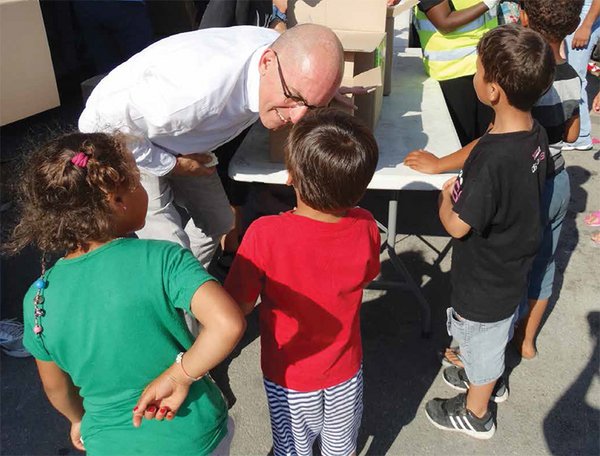Serving Humanity
User Links →The goal of K-12 institutions is not only to assist students in acquiring all necessary and sufficient skills to be successful in society but also in becoming leaders to serve humanity.
We define “Serving Humanity” as the informed commitment to Social Interest, Social Engagement, and Social Devotion. We lead by example, so engaging students in caring about others is something that can be attained by being the example, as parents and friends, but also by creating a school environment where students feel genuinely cared for.
The culture of ACS Athens fosters and empowers students to serve their community in many different ways. The different components of Serving Humanity are:
Social Interest:
Social Interest is an extension of one’s self into the community. It may include caring for people, but even beyond that, for example, the environment and the planet.
Social Engagement:
The ability to put interest into practice by first becoming aware, and then active in solving a social problem or improving a social situation. Social Engagement forces us to figure out ways to improve a condition and thus the individual takes responsibility for part of the solution.
Social Devotion:
The commitment and participation in improving a person’s life. This way of thinking becomes a way of life for individuals as they develop a positive mindset towards building a better society. In addition to providing the best educational experience to students, today’s academic institutions must inspire and instill a devotion to Serving Humanity. A well-rounded personality with ethos is a necessity for today’s global citizen. Educational leaders are in a unique position to contribute to shaping a student’s personality, interests, and mindsets. It is imperative to teach students to respond to multiple societal changes, to become proactive and care about the community they live in.
Students today live in a fast-paced, constantly changing environment. The ability to respond to change effectively but also to initiate change, when needed, is very important. It is the only way that students avoid becoming overwhelmed with change and see it as a challenge rather than an obstacle.
From ETHOS magazine Fall 2017 issue.





